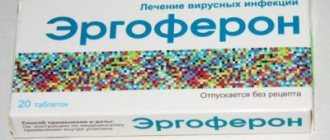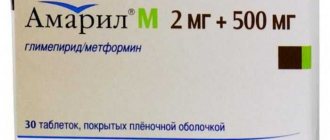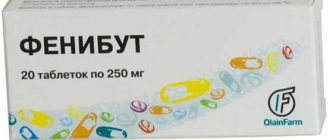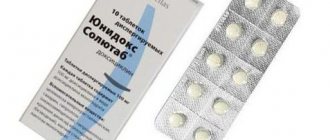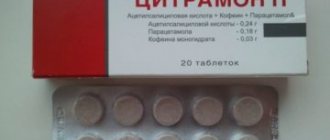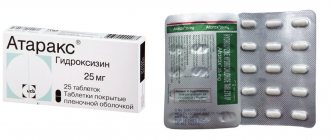Composition and dosage form
Mertenil is a lipid-lowering drug. Its pharmacological action is to suppress HMG-CoA reductase. The drug belongs to the group of statins, the active substance is rosuvastatin. The medicine is produced under a license from a Hungarian pharmaceutical company, and the country of origin is the Russian Federation.
Mertenil tablets have rosuvastatin dosages of 5, 10, 20 and 40 mg. In addition to the active substance, they contain additional components:
- cellulose single crystals;
- monohydrogenated lactose;
- magnesium hydroxide and stearate.
The medicine is packaged in plastic cells of 10 tablets, 30, 60 or 90 tablets in a cardboard package. Conditions for dispensing from pharmacies - according to a prescription written in Latin in accordance with the rules for preparing prescription forms.
Pharmacokinetics of Mertenil: metabolism of rosuvastatin occurs in hepatocytes under the influence of a number of biologically active molecules. In broken down form, 90% of the drug is excreted from the body in feces. The rest of the dose leaves the body passing through the kidneys.
Indications for use
The drug Mertenil has clear indications for use. This is a steady increase in the concentration of plasma cholesterol, an imbalance between its fractions (increased LDL, TG, total cholesterol, decreased HDL) when non-medicinal measures (proper nutrition, regular exercise, correction of body mass index) do not bring the desired result. The use of the drug is justified for familial hypercholesterolemia, with an isolated increase in triglyceride concentrations.
Metrenil is widely used in patients suffering from atherosclerotic lesions of the vascular bed. Taking the drug inhibits the development of atherosclerosis and has an active preventive effect against complications of this disease (heart attacks, acute cerebrovascular accidents, thrombosis). Doctors recommend taking rosuvastatin to people over 50 years of age who have a high risk of coronary heart disease.
Patients at risk have one or more unfavorable factors (increased systolic or diastolic blood pressure, addiction to alcohol, tobacco products, decreased plasma HDL, the presence of hereditary ischemic heart disease in close relatives). Before using Mertenil for cholesterol, you should consult a cardiologist or therapist!
Contraindications
There are a number of clinical situations when taking Mertenil is contraindicated. The medicine is prohibited for liver diseases in the acute stage, an unexplained increase in the serum levels of liver enzymes (ALaT, ACaT, GGT, alkaline phosphatase), and in case of insufficiency of liver or kidney function. It is not recommended to take it for myopathies, simultaneously with cyclosporine drugs and hormonal contraceptives, while carrying a child and feeding him breast milk.
Contraindications also include: hypotension, septic manifestations, recent injuries and surgical interventions, addiction to alcoholic beverages, diseases of the endocrine system, severe epilepsy.
This medicine is contraindicated for persons under the age of majority! It is not advisable to start treatment with Mertenil if you have allergic reactions to the active substance or auxiliary components of the dosage form.
Side effects
Mertenil is well tolerated by patients. During treatment with the drug, undesirable reactions may occur. According to studies, side effects occur in only 4% of people taking this medicine. Undesirable effects of the drug include: allergic manifestations (urticaria, Quincke's edema, anaphylactic shock), a decrease in the number of circulating platelets, cephalalgia, sleep disturbances, reactive pancreatitis, hepatitis, dyspeptic symptoms, increased activity of liver enzymes.
Taking Mertenil increases the risk of myasthenia gravis, rhabdomyolysis and acute renal failure. This side effect most often develops in people taking 40 mg of the drug per day for a long time.
Directions for use and doses
A few weeks before starting to take the drug, you should adhere to a proper diet low in animal fats. During treatment you should continue to eat according to the same principle.
The dosage of rosuvastatin is selected individually. This depends on the purpose of therapy, the patient’s body’s response to the drug, the initial and optimal concentration of plasma cholesterol and its fractions. The starting dose is 5 to 10 mg of rosuvastatin per day. The maximum daily dose of 40 mg of rosuvastatin is prescribed for severe hypercholesterolemia that is difficult to correct. Due to the high risk of side effects, such patients should be treated under the constant supervision of medical specialists. An overdose of the medicine is possible if the dosage regimen prescribed by the doctor is not followed.
The tablets must be taken whole with a glass of clean water. Rosuvastatin is taken once a day, preferably at the same time. Mertenil can be taken before or after meals.
Dosage and method of administration
The instructions for use indicate that before starting treatment with Mertenil, the patient should follow a standard diet using foods low in cholesterol, which should be continued throughout the entire treatment period. Doses of the drug should be selected individually in accordance with the purpose of treatment and the patient's therapeutic response to therapy, taking into account current generally accepted recommendations for target lipid levels.
- The drug is taken orally, at any time of the day, regardless of food intake. The tablets should not be chewed or crushed; they must be swallowed whole with water.
- The recommended initial dose of the drug is 5 mg or 10 mg 1 time / day both for patients who have not previously taken statins and for patients switched to taking this drug after therapy with other HMG-CoA reductase inhibitors.
- When choosing the initial dose of the drug, one should take into account the level of cholesterol in each individual patient, as well as the possible risk of developing cardiovascular complications and the potential risk of side effects. If necessary, the dose can be adjusted after 4 weeks.
Due to the possible development of side effects with a dose of 40 mg compared to lower doses of the drug, final titration to a maximum dose of 40 mg should only be carried out in patients with severe hypercholesterolemia and a high risk of cardiovascular complications (especially in patients with hereditary hypercholesterolemia) who did not achieve the target cholesterol level when taking a dose of 20 mg and who will be under medical supervision. When prescribing a dose of 40 mg, careful medical supervision is recommended. It is not recommended to prescribe a dose of 40 mg to patients who have not previously consulted a doctor.
- The recommended starting dose for elderly patients (over 70 years of age) is 5 mg.
In patients with liver failure of 7 points and below on the Child-Pugh scale, no increase in systemic concentrations of rosuvastatin was detected. However, in patients with liver failure of 8 and 9 points on the Child-Pugh scale, an increase in systemic concentrations of the drug was noted. In such patients, liver function should be monitored during therapy. There are no data on the use of rosuvastatin in patients with liver failure more than 9 points on the Child-Pugh scale. Mertenil is contraindicated for patients with active liver disease.
No dosage adjustment is required in patients with mild or moderate renal impairment. The recommended initial dose of the drug is 5 mg for patients with moderate renal failure (creatinine clearance less than 60 ml/min). In patients with moderate renal failure, administration of the drug at a dose of 40 mg is contraindicated. The use of Mertenil in any dose is contraindicated in patients with severe renal failure.
Carriers of the SLC01B1 (OATP1B1) c.521CC and ABCG2 (BCRP) c.421AA genotypes showed an increase in rosuvastatin exposure (AUC) compared to carriers of the SLCO1B1 c.521TT and ABCG2 c.421CC genotypes. For patients carrying genotypes c.521CC or c.421AA, the recommended maximum dose of Mertenil is 20 mg 1 time / day.
In patients of the Mongoloid race, an increase in systemic concentrations of rosuvastatin was noted. When prescribed in doses of 10 mg and 20 mg, the recommended initial dose of the drug for patients in this group is 5 mg. The use of the drug at a dose of 40 mg in such patients is contraindicated.
- When prescribed in doses of 10 mg and 20 mg, the recommended initial dose of the drug for patients with a predisposition to myopathy is 5 mg. The use of the drug at a dose of 40 mg is contraindicated in such patients.
Rosuvastatin binds to various transport proteins (in particular, OATP1B1 and BCRP). When Mertenil is co-administered with drugs (such as cyclosporine, some HIV protease inhibitors, including the combination of ritonavir with atazanavir, lopinavir and/or tipranavir) that increase the plasma concentration of rosuvastatin due to interaction with transport proteins, the risk of myopathy (including rhabdomyolysis) may increase. ).
In such cases, the possibility of prescribing alternative therapy or temporarily stopping Mertenil should be assessed. If the use of the above drugs is necessary, the benefit-risk ratio of concomitant therapy with Mertenil should be assessed and the possibility of reducing its dose should be considered.
Interaction with other drugs
With simultaneous treatment with rosuvastatin and cyclosporine drugs, or gemifibrosil, its plasma content increases. The combined use of Mertenil with proteolytic drugs significantly lengthens its half-life and elimination.
The combination of antacids and rosuvastatin, on the contrary, reduces the serum content of the latter. Co-administration of a lipid-lowering agent with hormonal contraceptives or indirect anticoagulants significantly increases their plasma concentration.
Features of application
Treatment with Mertenil has some features. Before you start taking it, you should consult a therapist or cardiologist!
During pregnancy and breastfeeding
While pregnant and breastfeeding, rosuvastatin is contraindicated. This is due to the need for a high concentration of cholesterol in the mother’s blood for the proper development of the fetus. If pregnancy occurs, treatment with rosuvastatin is stopped immediately. There is no reliable data on the penetration of the drug into the secretions of the mammary glands, so lactation is stopped during treatment.
special instructions
During treatment with Mertenil 10, you must follow a diet and lead a healthy lifestyle. It is necessary to regularly monitor kidney function using blood and urine tests. If protein is detected in the urine, you should notify your doctor. If you have a lack of thyroid hormones, you do not need to take statins right away. Hypothyroidism must be treated to normalize blood cholesterol levels.
Use during pregnancy and lactation
It is prohibited to use Mertenil during pregnancy. Women of childbearing potential who use statins should use reliable contraception. If an unplanned pregnancy occurs, you should stop taking the pills. During breastfeeding, treatment with Mertenil is prohibited.
Use in children
The drug is prescribed to patients over 8 years of age, treatment is carried out under the supervision of a physician.
Feedback about use
Patients to whom doctors prescribe Mertenil sometimes begin to doubt whether or not to take the prescribed pills. To resolve this issue, it is advisable to study reviews of patients who took Mertenil. Most reviews about the drug are positive. Those who have taken it note its good tolerability and relatively quick effect. What else does the popularity of a medicine depend on? From its affordability. Patients treated with rosuvastatin are satisfied with the ratio of its price and effectiveness. The opinion of cardiologists about the drug is unanimous - it is an effective drug at a relatively reasonable cost, so they often prescribe it to their patients.
Atherosclerosis is the disease of the century. Mertenil tablets are intended for the treatment and prevention of atherosclerosis, because they reduce the level of bad cholesterol in the blood. When taking Mertenil, the patient's condition noticeably improves. Long-term remission is achieved after completing the full course of treatment. Like any other medicine, Mertenil is prescribed by the attending physician after a complete diagnosis of the patient’s health condition. There are quite a lot of analogues in the pharmacy chain: Reddistatin, Rosuvastatin, Rezistark, Rozart, Rosucard. Which drug to choose is up to you.
Composition and release form
Mertenil tablets are intended for the treatment
Mertenil is manufactured in the form of tablets, which are coated with a white film coating and have a round, biconvex shape. The markings on the tablets differ in numbers, depending on the weight of the drug:
- C33 – 5 mg;
- C34 – 10 mg;
- C35 – 20 mg;
- C36 – 40 mg.
The medicine has the same composition, only the amount of the main substance, which is rosuvastatin calcium, changes.
- microcrystalline cellulose 12;
- lactose monohydrate;
- magnesium hydroxide;
- magnesium stearate;
- crospovidone (type A).
The film shell is made of Opadray 2, which contains: macrogol 3350, talc, titanium dioxide - E 171, polyvinyl alcohol.
The tablets are packaged in blisters of 10 pieces each, then in cardboard boxes containing 3 blisters and instructions for using the medicine.
Composition, release form
The active ingredient of Mertenil is rosuvastatin . The tablet core is formed by: milk sugar (lactose), microcrystalline cellulose, magnesium hydroxide, magnesium stearate, crospovidone type A. Shell composition: talc, titanium dioxide (E171), polyvinyl alcohol, macrogol 3350.
Mertenil is a round, white-coated tablet containing rosuvastatin 5, 10, 20 or 40 mg. Tablets of different dosages differ from each other by the embossing applied:
- 5 mg – C33;
- 10 mg – C34;
- 20 mg – C35;
- 40 mg – C36.
pharmachologic effect
Mertenil is a lipid-lowering drug and is prescribed to patients with high blood cholesterol levels. The main component, rosuvastatin, affects the production of mevalonic acid in liver tissue, increasing the number of liver LDL receptors on cell surfaces, which increases LDL catabolism, slows down the production of VLDL - very low density lipoproteins, which leads to a decrease in the total level of LDL and VLDL. As a result, the level of HDL in the blood plasma increases and the atherogenic index changes. After just 2 weeks of taking the medicine, the first results appear, the maximum effect is achieved after a month.
An analogue of Mertenil is Rosuvastatin. It differs from other drugs of this type in that it not only fights “bad” cholesterol, but also stops chronic inflammation that leads to atherosclerosis.
Pharmacological effect
The active component of Mertenil is rosuvastatin calcium, which leads to a decrease in the level of total cholesterol and low-density lipoprotein cholesterol. Rosuvastatin is a selective and competitive inhibitor of HMG-CoA reductase, which is a cholesterol precursor enzyme. This substance affects the liver, which synthesizes cholesterol and destroys low-density lipoproteins.
The patient notices the first effects from the use of Mertenil within a week from the start of taking the drug, maximum positive changes are observed after a month.
Indications for use
Martenil gives a person the opportunity to control cholesterol levels
Mertenil is a broad-spectrum medicine. The instructions give clear instructions on the use of this drug. It can be used for the following diseases:
- excess cholesterol in the blood;
- for the treatment and prevention of atherosclerosis;
- with hereditary hypercholesterolemia;
- in case of combined dyslipidemic conditions;
- with hypertriglyceridemia;
- patients over 60 years of age and overweight.
In case of a recent heart attack or cerebral stroke, hypertension, revascularization, diabetes mellitus and obesity, Mertenil tablets are taken to prevent cardiovascular pathologies. They give a person the opportunity to control cholesterol levels within acceptable limits and avoid sudden changes.
Directions for use and dosage
The medicine Mertenil must be used strictly according to the instructions. The tablets are taken orally, regardless of food intake. A single dose is swallowed without chewing or crushing. Wash it down with plenty of warm water. At the beginning of treatment, you can take 5-10 mg of the drug once a day. This is 1 or 2 tablets of 5 mg.
The daily dose can be increased only 4 weeks after starting the medication. At the same time, regularly take tests to the laboratory to check the levels of glucose and cholesterol in the blood. The maximum dosage of 40 mg is taken only as prescribed by a doctor and under his strict supervision.
Release form and composition
Each film-coated tablet contains the active ingredient:
- Film-coated tablets, 5 mg: rosuvastatin calcium 5.2 mg (equivalent to rosuvastatin 5 mg),
- Film-coated tablets, 10 mg: rosuvastatin calcium 10.4 mg (equivalent to rosuvastatin 10 mg),
- Film-coated tablets, 20 mg: rosuvastatin calcium 20.8 mg (equivalent to rosuvastatin 20 mg),
- Film-coated tablets, 40 mg: rosuvastatin calcium 41.6 mg (equivalent to rosuvastatin 40 mg);
Contraindications for use
Mertenil is prescribed by the attending physician
As mentioned earlier, Mertenil tablets have many contraindications. Drugs with different concentrations of the main substance have different contraindications. Medicines with a dosage of 5 mg, 10 mg and 20 mg are contraindicated in patients with:
- liver pathologies during exacerbation. Including an increase in the activity of liver transaminases, as well as any increase in their activity in the blood more than three times compared to ULN;
- liver and kidney failure;
- myopathy;
- simultaneous use of cyclosporines;
- predisposition to myotoxic complications;
- during pregnancy and during breastfeeding;
- women of childbearing age who do not use sufficiently reliable contraceptives;
- under the age of 18;
- lactose intolerance, lactase deficiency or gluco-galactose malabsorption;
- hypersensitivity to rosuvastatin or other components of the drug.
Interaction
It is very important to combine Mertenil correctly with other medications. If you accept:
- Cyclosporine - Mertenil AUC (area under the concentration-time curve) increases 7 times.
- Ezetimibe - change in AUC and concentration of both drugs. The likelihood of adverse events occurring.
- Protease inhibitors - the systemic action of Mertenil may be prolonged.
- Erythromycin - decrease in AUC0–t and Cmax of Mertenil.
- Vitamin K antagonists - possible increase in INR (international normalized ratio).
- Gemfibrozil and other drugs that lower lipid levels - a 2-fold increase in the concentration and AUC of Mertenil. There may be a risk of myopathy. The simultaneous use of Mertenil 40 mg tablets and fibrates is prohibited. The dose of rosuvastatin should not be higher than 5 mg.
- Antacids - in suspensions containing aluminum or magnesium hydroxide, can cause a decrease in the concentration of Mertenil in the blood plasma by about half.
- Oral contraceptives and hormone replacement therapy - the AUC of ethinyl estradiol may increase by 26% and norgestrel by 34%.
- Cytochrome P450 isoenzymes – a slight increase in the AUC of Mertenil is possible.
Interaction with other drugs
The higher the dose, the more pronounced the side effects are.
When used simultaneously with Cyclosporine, the maximum level of Mertenil in the body increases. Such a combination of drugs is strictly prohibited.
- Fibrates can cause myopathy, either alone or in combination with Mertenil.
- Taking Mertenil with indirect anticoagulants increases prothrombin time.
- Antacids based on aluminum and magnesium hydroxide are able to reduce the absorption of Mertenil in the body and reduce the concentration of rosuvastatin in the blood plasma by almost 50%.
- Erythromycin derivatives increase intestinal motility and reduce the availability of Mertenil.
- Hormonal contraceptives based on norgestrel and ethinyl estradiol respond to taking Mertenil with an increase in concentration by 25-35%.
- Pharmaceuticals derived from itraconazole retain rosuvastatin in the body, and its concentration may increase by a third.
Drug interactions
Co-administration of Mertenil with drugs that lower lipid levels (for example, gemfibrozil) leads to an increase in the concentration of rosuvastatin in the blood.
Fenofibrate, gemfibrozil and nicotinic acid, when used simultaneously with Mertenil, increase the risk of developing myopathy, so such combinations of medications are not recommended. Also, you should not simultaneously prescribe Mertenil with protease inhibitors against the background of HIV.
Antacids in suspension (containing magnesium hydroxide and aluminum) and erythromycin help reduce the concentration of the active component of Mertenil in the blood plasma, so you should maintain an interval between taking these medications of at least two hours.
Side effects
The frequency and strength of side effects directly depends on the dose of the drug taken. The higher the dose, the more pronounced the side effects.
- Allergic reactions in the form of skin rash, urticaria, itching, angioedema, very rarely Stevens-Johnson syndrome.
- On the part of the central nervous system, the appearance of dizziness, headaches, asthenic syndrome, insomnia, changes in mood, and very rarely polyneuropathy and amnesia are noted.
- Digestive system: constipation, abdominal pain, nausea, increased activity of liver transaminases, very rarely jaundice, hepatitis.
- Musculoskeletal system: myalgia, myopathy (myositis), rhabdomyolysis, very rarely arthralgia.
- Urinary system: hematuria was very rarely observed, 1 case per 10,000 subjects. In addition, there were cases of proteinuria, that is, the amount of protein in the urine changed.
Side effects
The list of possible side effects that occur on average in 10 out of 100 cases when using the drug Mertenil: exacerbation of type 2 diabetes mellitus, dizziness, headaches, constipation or diarrhea, nausea, flatulence, moderate asthenic conditions.
A list of possible side effects that occur on average in 5 out of 100 cases when using Mertenil: moderate allergic reactions (manifested by rash and itching), sleep disturbances (nightmares and/or insomnia), swelling of the extremities, decreased libido.
List of possible side effects that occur on average in 1 out of 100 cases when using Mertenil: myopathy, rhabdomyolysis, degenerative liver damage.
List of possible side effects that occur on average less than 1 in 100 cases when using Mertenil: memory loss, mental disorders of general etiology.
Important! All side effects are dose-dependent. In most cases, reducing the dosage will reduce the side effect or eliminate it completely. However, if side effects from the last (less than 1 out of 100 cases) and penultimate (in 1 out of 100 cases) group occur, immediate discontinuation of the drug is required.
Reviews
Patients give Martenil a good rating
Reviews about the drug Mertenil are positive. Patients give it a good rating when used simultaneously with heart medications for the prevention of atherosclerosis and for weight loss. In addition, everyone likes the low price. Analogues of Mertenil are Roxera and Rosuvastatin. All these drugs are made on the basis of Rosuvastatin. They are more expensive, but are in demand among patients. What to choose Mertenil, Rosuvastatin or Roxera?
Important! Do not forget that any treatment must be prescribed by a specialist based on the collected medical history and the results of laboratory blood tests. Do not self-medicate - this can lead to irreversible consequences.
Treatment with rosuvastatin and other statins reduces the likelihood of having to undergo stenting or coronary bypass surgery. The original drug is Crestor from AstraZeneca. Mertenil are rosuvastatin tablets from a competing manufacturer (Gedeon Richter), which are cheaper. The company Gedeon Richter is trying to prove that its drug is not inferior in effectiveness to Crestor tablets. Below are instructions for use written in clear language. Read the indications for use, dosages, contraindications, interactions with other medications. Find out what kind of cholesterol reduction you can expect when you start taking Mertenil. Understand what side effects there are and how to reduce or completely eliminate them.
| Manufacturer | Gedeon Richter (Hungary) |
| ATS code | S10AA07 |
| Pharmacological group | HMG-CoA reductase inhibitors (statins) |
| Active substance | Rosuvastatin calcium |
| Release form | Tablets of 5, 10, 20 and 40 mg |
| Package | Contour foil cell packaging; |
Mertenil®
Renal effects
Proteinuria, predominantly of tubular origin, was observed in patients taking high doses of Mertenil®, especially 40 mg, but in most cases it was intermittent or short-term. It has been shown that such proteinuria does not indicate the onset of acute or progression of existing kidney disease. The incidence of serious renal dysfunction increases with 40 mg rosuvastatin. It is recommended to monitor renal function indicators during therapy with Mertenil®.
From the musculoskeletal system
When using the drug Mertenil® in all dosages, and especially when taking the drug in a dose exceeding 20 mg, myalgia, myopathy and, in rare cases, rhabdomyolysis were detected. Rhabdomyolysis has occurred very rarely with concomitant use of ezetimibe and HMG-CoA reductase inhibitors. In this case, a pharmacological interaction between the drugs cannot be excluded, so Mertenil® and ezetimibe should be used together with caution (see section “Interaction with other drugs”). The incidence of rhabdomyolysis increases when taking 40 mg of rosuvastatin.
Determination of creatine phosphokinase
Determination of CPK activity should not be carried out after intense physical activity that causes an increase in CPK, as this may complicate the interpretation of the results. If CPK activity increases before therapy by more than 5 times the upper limit of normal, a repeat measurement should be taken after 5-7 days. If repeated measurement confirms the initial CPK value (5 times higher than the upper limit of normal), therapy with Mertenil® should not be started.
Before starting therapy
The drug Mertenil®, like other HMG-CoA reductase inhibitors, should be prescribed with extreme caution to patients with existing risk factors for myopathy/rhabdomyolysis. These factors include:
- renal failure;
— hypothyroidism (for a dose of 40 mg, see section “Contraindications”);
- own or family history of muscle diseases (for a dose of 40 mg, see section “Contraindications”);
- a history of myotoxicity while taking other HMG-CoA reductase inhibitors or fibrates (for a dose of 40 mg, see section “Contraindications”);
- alcohol abuse (for a dose of 40 mg, see section “Contraindications”);
— age over 65 years;
- conditions accompanied by an increase in the concentration of the drug in the blood plasma (see section “Interaction with other drugs”) (for a dose of 40 mg, see section “Contraindications”);
- simultaneous use of fibrates (for a dose of 40 mg, see section “Contraindications”),
In such patients, the balance of risk and possible benefit of therapy should be assessed and clinical monitoring should be carried out throughout the entire course of therapy.
During therapy
It is recommended that patients be informed to immediately notify their doctor if they experience unexpected muscle pain, muscle weakness, or cramps, especially when accompanied by malaise or fever!
In such patients, it is imperative to monitor CPK activity. Treatment should be discontinued if CPK activity is more than 5 times the upper limit of normal or if muscle symptoms are severe and cause daily discomfort throughout the day (even if CPK activity is 5 times less than the upper limit of normal). If symptoms disappear and CPK activity returns to normal, re-prescribing Mertenil® or prescribing an alternative HMG-CoA reductase inhibitor in lower doses should be considered with careful monitoring of the patient. Regular monitoring of CK activity in patients in the absence of symptoms of rhabdomyolysis is impractical.
Very rare cases of immune-mediated necrotizing myopathy have been reported with clinical manifestations of persistent proximal muscle weakness and increased serum CPK activity during treatment or upon discontinuation of statins, including rosuvastatin. Additional studies of the muscular and nervous system, serological studies, and therapy with immunosuppressive drugs may be required.
However, an increase in the incidence of myositis and myopathy was detected in patients taking other HMG-CoA reductase inhibitors together with fibric acid derivatives, including gemfibrozil, cyclosporine, nicotinic acid in lipid-lowering doses, antifungals, protease inhibitors and macrolide antibiotics. Gemfibrozil increases the risk of myopathy when combined with certain HMG-CoA reductase inhibitors. Therefore, simultaneous use of rosuvastatin and gemfibrozil is not recommended. The risk/benefit ratio should be carefully assessed when co-administering rosuvastatin with fibrates or nicotinic acid in lipid-lowering doses (more than 1 g). Concomitant use of rosuvastatin at a dose of 40 mg and fibrates is contraindicated (see sections “Interaction with other drugs” and “Side effects”). Mertenil® should not be prescribed to patients with acute, severe illnesses suggestive of myopathy or with the possible development of secondary renal failure (for example: sepsis, arterial hypertension, surgery, trauma, metabolic syndrome, seizures, endocrine disorders, electrolyte disorders (see section "Carefully").
Liver
Like other HMG-CoA reductase inhibitors, Mertenil® should be prescribed with extreme caution to patients who abuse alcohol or have a history of liver disease.
It is recommended to measure liver function parameters before and 3 months after the start of treatment. If the activity of “liver” transaminases in the blood serum is 3 times higher than the upper limit of normal, you should stop taking the drug or reduce the dose taken (see section “Dosage and Administration”). The incidence of serious liver dysfunction (mainly associated with increased activity of liver transaminases) increases when taking 40 mg of the drug.
Secondary hypercholesterolemia
In patients with secondary hypercholesterolemia due to hypothyroidism, nephrotic syndrome, therapy for the underlying disease should be carried out before starting treatment with Mertenil®.
Special populations. Ethnic groups
Pharmacokinetic studies revealed an increase in the systemic concentration of rosuvastatin among patients of the Mongoloid race compared to data obtained among patients of the Caucasian race (see section “Dosage and Administration” and “Pharmacokinetics”).
Protease inhibitors
Concomitant use of rosuvastatin with protease inhibitors is not recommended (see section
"Interaction with other drugs").
Lactose
The drug should not be used in patients with lactase deficiency, galactose intolerance and glucose-galactose malabsorption.
Interstitial lung disease
Isolated cases of interstitial lung disease have been reported with some statins, especially over long periods of use. Manifestations of the disease may include shortness of breath, nonproductive cough and deterioration in general health (weakness, weight loss and fever). If interstitial lung disease is suspected, statin therapy should be discontinued.
Diabetes mellitus type 2
There is evidence that statins, as a class, cause elevated blood glucose concentrations and, in some patients at high risk of developing future diabetes, may produce levels of hyperglycemia at which standard diabetes treatment is indicated. However, this risk is outweighed by the reduced risk of vascular complications, so there is no reason to stop statin treatment. In patients at risk of hyperglycemia (fasting glucose concentration from 5.6 to 6.9 mmol/l, BMI > 30 kg/m2, elevated triglyceride concentrations, arterial hypertension), clinical and biochemical parameters should be monitored in accordance with national recommendations.
Mertenil: instructions for use
| pharmachologic effect | Mertenil, like other rosuvastatin drugs, reduces “bad” LDL cholesterol in the blood, partially blocking its production in the liver. Increases “good” HDL cholesterol. Reduces chronic low-grade inflammation in blood vessels. Improves C-reactive protein and other markers of inflammation. Blood test results begin to improve after 1-2 weeks, with maximum effect after 2-4 weeks. |
| Pharmacokinetics | Mertenil and other rosuvastatin tablets can be taken with food or on an empty stomach, the effectiveness does not change. Rosuvastatin is excreted from the body 90% by the liver through the intestines, 10% by the kidneys. It puts less strain on the liver systems than other statins, which cleanse the blood of the active substances of drugs. Due to this, it has fewer negative interactions with other drugs than previous generation statins. |
| Indications for use | High cholesterol in adults and adolescents. Inhibition of the development of atherosclerosis. Prevention of first and recurrent heart attack, ischemic stroke and other complications of atherosclerosis. After undergoing surgery to restore blood flow in vessels affected by atherosclerosis. Elevated C-reactive protein in the blood in the presence of other cardiovascular risk factors, even if cholesterol is normal. Taking Mertenil tablets does not replace leading a healthy lifestyle. Study the article “Preventing Heart Attack and Stroke” and do what it says. Otherwise, the medicine will not help much. |
Mertenil: reviews
Read reviews from people who take Mertenil here. They discuss the effect of this drug on well-being and liver function. The active ingredient of the drug is rosuvastatin - the most effective drug that lowers “bad” LDL cholesterol in the blood. For some patients, even this powerful drug does not help enough. Find out the reasons why Mertenil may have little effect on cholesterol, and what to do in such cases.
People who have real indications for the use of rosuvastatin tablets need to take this medicine daily, without breaks. Do not be alarmed by the negative reviews left by other patients. Problems arise for those who take Mertenil incorrectly and psychologically set themselves up negatively, expecting in advance that the medicine will cause side effects. Rosuvastatin helps most people well without making them feel worse. But satisfied patients rarely bother writing reviews on medical websites.

